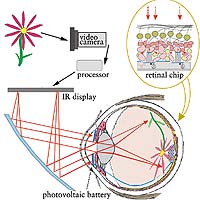 |
University Park PA (SPX) Apr 06, 2011 The first non-Iraqi archaeological investigation of the Tigris-Euphrates delta in 20 years was a preliminary foray by three women who began to explore the links between wetland resources and the emergence and growth of cities last year. "Foreign investigations in Iraq stopped in the 1990s," said Carrie Hritz, assistant professor of anthropology, Penn State. "Iraqis continued research, but because their work is unpublished, we are unsure of where they surveyed." The marshlands in Iraq and Iran were drained between 1950 and the 1990s. While initial explanations were that Iraq needed the land for agricultural uses, more often than not, politics played a role. After the first Gulf war, Saddam Hussein drained the areas between the Tigris and Euphrates to control and punish Shia dissidents among the Marsh Arabs. Restoration of the Hammar marshes is now a high national priority. If we do not act quickly, the window of opportunity for conducting work in this region will close, according to the researchers who include Hritz; Jennifer Pournelle, research assistant professor, School of the Environment, University of South Carolina, and Jennifer Smith, associate professor of geology, Washington University in St. Louis. The project aims to investigate the contributions of the early-mid Holocene shoreline of the gulf and marshes to the economic foundations of Mesopotamian cities. The researchers are looking at archaeological sites from 5,000 B.C. to Islamic times. "Our interest is in early settlement," Hritz told attendees at the annual meeting of the Society of American Archaeology in Sacramento, Calif. " The early period of settlement is always linked to the development of agriculture." Hritz notes, however, that marshes have all the resources necessary for settlement - fish, game and plants. She suggests that people would need a wide resource base to create urban areas in the midst of the Tigris-Euphrates delta and that the early cities in the marshes might have been precursors to agricultural settlements. Carrying out any type of survey in a country at war is difficult and making arrangements becomes a daunting task. "Ultimately, we found that the only way to get into the country that was cost effective was to go on a tour with a British tour company," said Hritz. "While in Bagdad, we met with the State Board of Antiquities and Heritage, and they encouraged us to visit the sites with a SBAH representative and report back to them any observations." The researchers also used local Iraqi security for their trip rather than hiring a foreign security firm. They spent a week on their British tour going from Bagdad to Basra and then spent five days with a private guide doing geoarchaeological survey in the Basra area. "We saw everything we intended to see except for one area that was flooded," said Hritz. "We did not have the proper equipment to enter the flooded area." Beside the preliminary survey, their aim was to establish collaborations with researchers at the University of Basra. They gave lectures at the university and met with geologists to determine what the researchers needed and the part that researchers and university could play. Looting and damage to university laboratory equipment occurred during the initial stages of the current war in Iraq. The researchers plan to include the University of Basra scientists in their future work and hope to use not only their expertise, but also enhance their facilities. "One thing we were able to do was to move forward the process to get the University of Basra access to JSTOR," said Hritz. "They now have access." JSTOR is an online database of more than 1,000 academic journals.
Share This Article With Planet Earth
Related Links Penn State All About Human Beings and How We Got To Be Here
 'Bionic eye' implant offers hope to the blind
'Bionic eye' implant offers hope to the blindGlen Burnie (AFP) Maryland (AFP) April 3, 2011 For a man whose view of the world has slowly faded to black over 30 years, a device that allows him to see flashes of light has enkindled his hope of one day gazing upon his grandson's face. A career electrician who grew up in Greece and came to the United States as a young man, Elias Konstantopoulos first noticed his vision getting poorer when at age 43 he absentmindedly tried on a relative ... read more |
|
| The content herein, unless otherwise known to be public domain, are Copyright 1995-2010 - SpaceDaily. AFP and UPI Wire Stories are copyright Agence France-Presse and United Press International. ESA Portal Reports are copyright European Space Agency. All NASA sourced material is public domain. Additional copyrights may apply in whole or part to other bona fide parties. Advertising does not imply endorsement,agreement or approval of any opinions, statements or information provided by SpaceDaily on any Web page published or hosted by SpaceDaily. Privacy Statement |